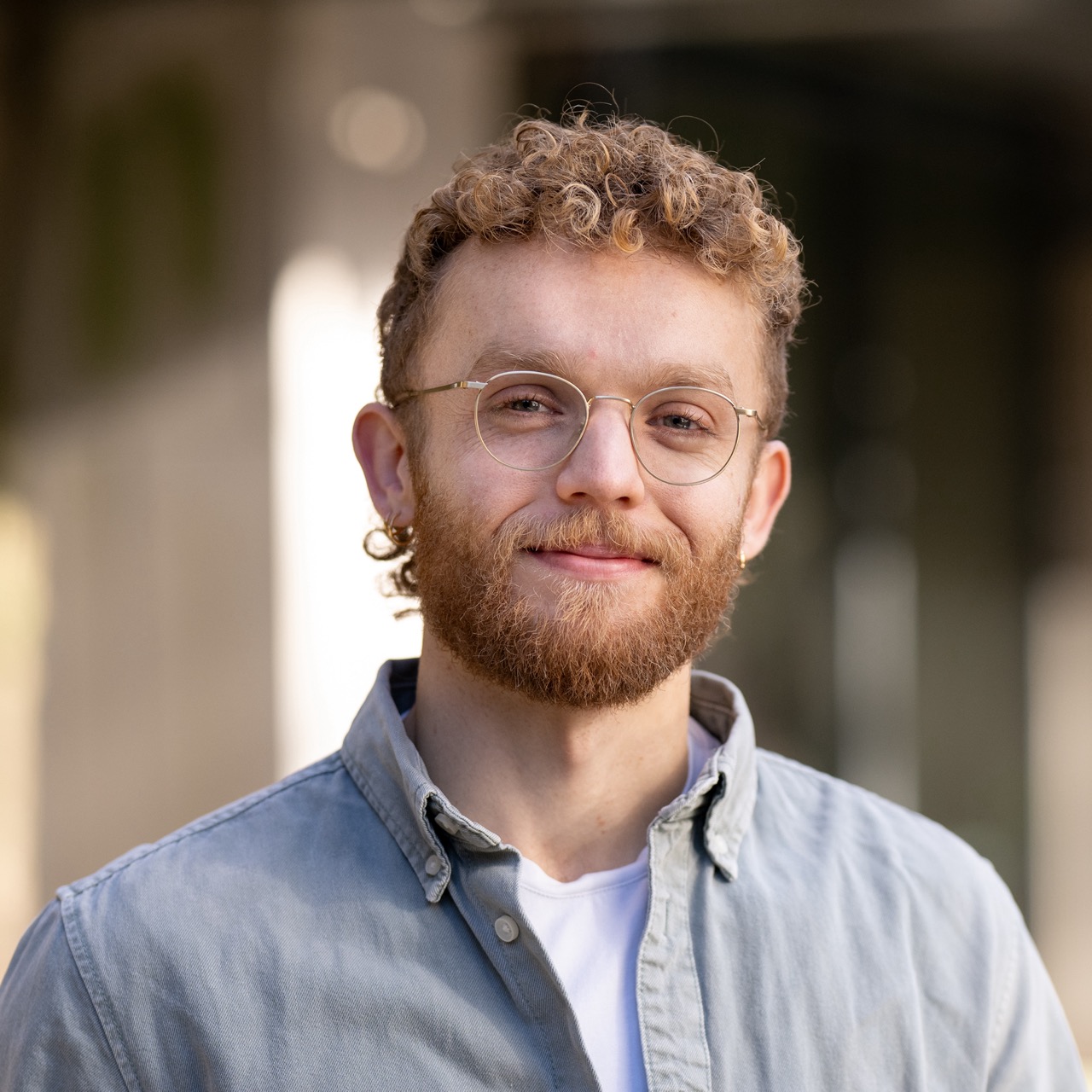Hunter Wade York
About Me
I am a scholar of work, organizations, and education and a sixth-year PhD student at Princeton University in the Department of Sociology and the Office of Population Research (Demography). My research examines how institutional structures like firms, educational systems, and labor markets shape social stratification and mobility across the life course, with implications for firm recruitment practices and larger, societal inequality.
I will be on the academic job market in fall of this year (2025). Prior to Princeton, I received an MPH in Global Health from the University of Washington and an AB in Human Evolutionary Biology and Music from Harvard. Though my academic trajectory has taken many turns, I like to think that is part of my chops as a sociologist.
Outside of work, I'm often singing choral and opera works or running, and I've been dabbling recently in film photography and darkroom developing. I'm also a fan of the natural world; I love plant, insect, and bird IDing.
Published Works (Sociology, Work, & Education)
Hunter York, Xi Song, & Yu Xie. (2025, January). Gradationalism Revisited: Intergenerational Occupational Mobility Along Axes of Occupational Characteristics. American Journal of Sociology. http://dx.doi.org/10.1086/733122
Friedman, J., Hunter York, Mokdad, A.H., & Gakidou, E. (2021, January). U.S. Children “Learning Online” during COVID-19 without the Internet or a Computer: Visualizing the Gradient by Race/Ethnicity and Parental Educational Attainment. Socius, 7:2378023121992607. http://dx.doi.org/10.1177/2378023121992607
Selected Published Works (Education & Public Health)
Balaj, M., Hunter York1, Sripada, K., Besnier, E., Vonen, H.D., Aravkin, A., Friedman, J., et al. (2021, August). Parental education and inequalities in child mortality: a global systematic review and meta-analysis. The Lancet, 398(10300):608–620. http://dx.doi.org/10.1016/S0140-6736(21)00534-1
Friedman, J., Hunter York, Graetz, N., Woyczynski, L., Whisnant, J., Hay, S.I., & Gakidou, E. (2020, April). Measuring and Forecasting Progress towards the Education-Related SDG Targets. Nature, 580(7805):636–639. http://dx.doi.org/10.1038/s41586-020-2198-8
Lim, S.S., Updike, R.L., Kaldjian, A.S., Barber, R.M., Cowling, K., Hunter York, Friedman, J., et al. (2018, October). Measuring Human Capital: A Systematic Analysis of 195 Countries and Territories, 1990–2016. The Lancet, 392(10154):1217–1234. http://dx.doi.org/10.1016/S0140-6736(18)31941-X
Mehr, S.A., Singh, M., Hunter York, Glowacki, L., & Krasnow, M.M. (2018, February). Form and Function in Human Song. Current Biology, 28(3):356–368.e5. http://dx.doi.org/10.1016/j.cub.2017.12.042
1 Equal first authorship with M. Balaj.
Works Under Review (Sociology, Work, & Education)
- Degrees of Inequality: Changing Horizontal Stratification by Educational Institutions and Fields of Study in the 21st Century: This paper provides the first comprehensive comparison of how two forms of horizontal stratification amongst college graduates, field of study and institutional affiliation, shape access to employment and earnings during the school-to-work transition. Using a novel linked dataset representing entire cohorts of graduates 2001 to the present, this research shows that while both forms of horizontal stratification influence early-career earnings, field-specific linkages to high-wage industries have become increasingly central compared to universities themselves or their characteristics alone. The findings point to a novel pathway by which inequality is growing amongst credentialed workers.
- Climbing the Ladder or Falling Behind? Gender and Race Diversity in Work Teams and Its Influence on Career Trajectories in the Federal Workforce: This paper focuses on internal organizational structuration and its consequences for wage growth and retention. Via a series of FOIA requests that cover the near-universe of US federal civil servants (N ≈ 3,000,000) from 2013 onward, I assemble a novel longitudinal dataset of workplace personnel data with high-quality information on work teams. Using these data, I employ a shift–share instrumental variable design to show that the demographic composition of teams at the time of hire, shaped by the occupational structuration of the teams themselves, affects employee outcomes. I show that women in majority-male teams experience faster earnings growth but are more likely to exit within five years, while majority-white teams are associated with lower wage growth for all workers, regardless of race. These findings highlight how the composition of work teams, and thus a novel form of peer effects, can affect worker outcomes.
Works in Progress (Sociology, Work, & Education)
- Occupational Aspirations, Expectations, and Achievement Through Childhood and Early Adulthood: In this paper, I look at how individual's occupational and educational aspirations change throughout childhood and early adulthood, which then get mapped onto realized adult occupational attainment around age 30. In doing so, I theorize how children adjust expectations and aspirations in accordance with realized outcomes, and I show how inequalities in later life are baked into aspirations rather early on.
